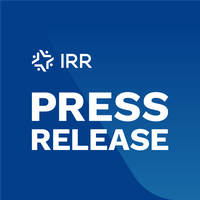
Even lawmakers who support BEE premiums admit that only a small elite has benefited from the policy thus far.
This much emerges from an exchange in the Appropriations Committee of the National Assembly last week, when IRR Legal provided written and oral submissions on how to achieve transparency regarding BEE premiums in public procurement, and how to maximise value for money.
This appears to be the first time that any parliamentary committee has been advised to amend the Division of Revenue Bill, which is updated every year, to make transparency about BEE premiums a precondition for receiving taxpayer funds.
MP Wesley Douglas, a whip for the MK party, falsely maligned the call to “eliminate BEE premiums under the guise of transparency and value for money” as “colonial”.
Douglas supports the expansion of BEE premiums but was also critical of BEE more generally. He stated that “we weren’t even part of BEE for the last 30 years, it’s only been the elite”.
That level of open disgruntlement from a politician who vocally supports the ongoing BEE premiums is noteworthy.
Most South Africans want to get rid of BEE premiums in public procurement. Last year a poll commissioned by the IRR found that 70% of respondents want BEE premiums to be reduced to R0, either by getting rid of racial preference entirely or by keeping racial preference only as a tiebreaker.
This is in line with the Zondo Report’s statement that “the primary national interest is best served when the government derives the maximum value-for-money in public procurement…”.
IRR Legal presented the opinion poll data, the Zondo Report advice, and findings against BEE premiums by the World Bank, the IMF, and Harvard’s Growth Lab to the parliamentary committee.
IRR Legal also unpacked the three sections of the Constitution that require transparency about government spending, including BEE premiums:
Furthermore, IRR Legal unpacked the Constitution’s requirement to reduce BEE premiums to R0 in order to maximise value for money:
Douglas opposed this, claiming that IRR Legal’s submission "fundamentally ignores” the constitutional equality clause, which creates room for affirmative action, namely section 9(2).
Douglas further claimed that IRR Legal should “come and explain some of these things and we need to have an opportunity to interrogate these lies and misconceptions that are put in front of the people”.
However, committee chairperson Mmusi Maimane cut Douglas off at this point, stating that “political debate” was not allowed “in this instance” of the public participation process on the 2025 Division of Revenue Bill.
IRR Legal Executive Director Gabriel Crouse concludes: “We have told no lies, and nothing we said contradicts the equality clause. To the contrary, the best way to promote equality right now is to maximise value for money.
“Black unemployment doubled from 5.5 million in the late 2000s to over 11 million today under the Blatant Elite Enrichment system. That is the greatest affront to the equality clause in operation today. Maimane’s committee can begin to turn the tide back towards inclusive growth this month if it amends the 2025 Division of Revenue Bill to make transparency and value for money conditions for receiving taxpayer money.”
IRR Legal has submitted a letter to Maimane in response to the committee’s invitation for further engagement.
Media contacts: Gabriel Crouse, IRR Legal Executive Director Tel: 082 510 0360 Email: gabriel@irrlegal.org.za
Media enquiries: Michael Morris Tel: 066 302 1968 Email: michael@irr.org.za
 LETTER | Rethinking BEE premiums could unlock billions for growth - Business Day
Feb 19, 2026
LETTER | Rethinking BEE premiums could unlock billions for growth - Business Day
Feb 19, 2026
 IRR’s 2026 Budget tips for Minister Godongwana
Feb 19, 2026
IRR’s 2026 Budget tips for Minister Godongwana
Feb 19, 2026
 Corruption-busting must begin with next week’s Budget – IRR
Feb 18, 2026
Corruption-busting must begin with next week’s Budget – IRR
Feb 18, 2026
 Hold Ramaphosa to account for his SONA admissions of failure, IRR urges MPs
Feb 17, 2026
Hold Ramaphosa to account for his SONA admissions of failure, IRR urges MPs
Feb 17, 2026
 Corrigan pt. II: FMD crisis — How did we get to this point? - Biznews
Feb 16, 2026
Corrigan pt. II: FMD crisis — How did we get to this point? - Biznews
Feb 16, 2026

 LETTER | Rethinking BEE premiums could unlock billions for growth - Business Day
Feb 19, 2026
LETTER | Rethinking BEE premiums could unlock billions for growth - Business Day
Feb 19, 2026
 IRR’s 2026 Budget tips for Minister Godongwana
Feb 19, 2026
IRR’s 2026 Budget tips for Minister Godongwana
Feb 19, 2026
 Corruption-busting must begin with next week’s Budget – IRR
Feb 18, 2026
Corruption-busting must begin with next week’s Budget – IRR
Feb 18, 2026
 Hold Ramaphosa to account for his SONA admissions of failure, IRR urges MPs
Feb 17, 2026
Hold Ramaphosa to account for his SONA admissions of failure, IRR urges MPs
Feb 17, 2026
 Corrigan pt. II: FMD crisis — How did we get to this point? - Biznews
Feb 16, 2026
Corrigan pt. II: FMD crisis — How did we get to this point? - Biznews
Feb 16, 2026